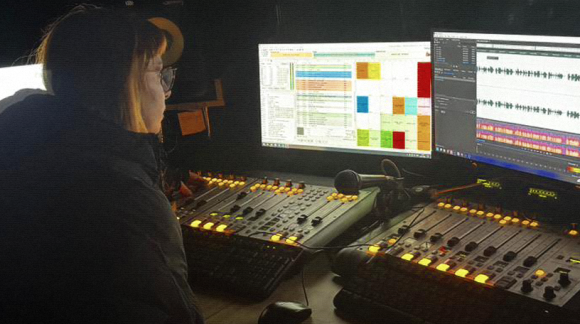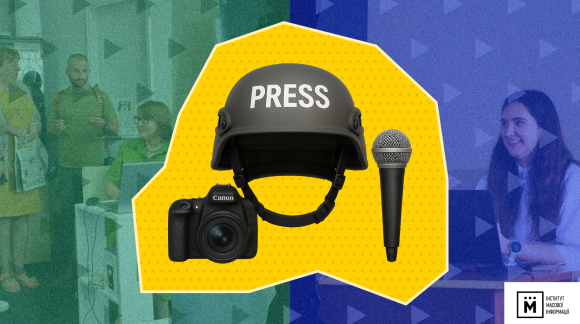At the beginning of April after almost a month of occupation, Ukrainian Armed Forces liberated the Kyiv region from the Russian invaders. In Bucha, Irpin and other cities, we witnessed some of the most horrific and inhumane things – executed civilians, burnt bodies, mass graves. It is hard to believe that such atrocities can occur in the XXI century in the centre of Europe. All those people and children were killed for the sole reason of being Ukrainians.
Both international and Ukrainian lawyers and academics raised concerns that the situation at hand displays the necessary elements of the crime of genocide as established by international law. As a minimum, these mass atrocities constitute war crimes and crimes against humanity, while several of Putin’s statements clearly depict his goal to destroy the whole of the Ukrainian nation, cultural identity and language. Such statements, widely disseminated and amplified by the Russian media, indicate the genocidal intent as a necessary element of the crime of genocide under the Genocide Convention, the Rome Statute, and customary international law.
In this regard, we would like to express our concerns about the inadequate application of the Meta community standards to the posts containing evidence of the ongoing violations of international criminal law, international humanitarian law and international human rights law in the context of Russian aggression against Ukraine and the respective consequences of such violations.
In the current situation, such posts must be preserved as valuable evidence for future legal action and the pursuit of justice before various international tribunals, including the International Court of Justice, the International Criminal Court, the European Court of Human Rights, and possibly special tribunals to be established.
They also play an important role in raising awareness of the wider audiences about international crimes committed by the Russian troops in Ukraine at times when Russia continues to harshly suppress information about these atrocities and blatantly denies its involvement in the massacres of Ukrainian civilians by spreading disinformation and polluting the information environment with “alternative facts”, just as it did in the case of the MH17 takedown in 2014.
On 3 April 2022, we noticed that Instagram suddenly hid all the photos under the hashtags #russianwarcrimes, #BuchaMassacre, #Bucha, #GenocideOfUkrainians, #StopUkrainianWar, etc. They were later restored, in part due to the public outcry of the Ukrainian users. The reason for blocking the hashtags was the alleged violation of the Community Standards as complained about by some of the platform users. Meta spokesman stated that “this happened automatically because of the graphic content people posted using these hashtags”.
On 4 April 2022, we witnessed a replication of the same pattern concerning the Facebook posts depicting the mass atrocities committed by the Russian army in Bucha. Ukrainian users complained about their posts being deleted, accounts restricted and suspended for the Community Standards violations, such as graphic violence and nudity. Some of them were later also restored on the platform.
At the same time, the hashtags glorifying Russian armed forces, including their insignia (“Z”, “V”, etc), remained constantly available across both platforms. We would like to draw your attention to the fact that the recent legislative developments in certain European jurisdictions equated those symbols with the Nazi symbolics and their dissemination is qualified as a crime.
In our opinion, such inconsistency and a rather selective approach to content moderation may lead to further harmful consequences and discredit Meta in the eyes of millions of its users in Ukraine as well as in the broader region. In the current situation of the ongoing foreign aggression, Ukrainians use Meta services as a tool to spread their message around the world and expose international crimes committed by the Russian military.
By doing so, the Ukrainian community upholds Meta’s mission to bring the world together – in this case, for the purpose of combating violations of international law and holding the perpetrators of such crimes accountable. Meta was already widely criticized for procuring hatred by ineffectively reacting to harmful content in Myanmar, thus, playing a role in the Rohingya genocide. In Ukraine, Meta still has a chance to act responsibly and not repeat its past mistakes by serving as a tool for achieving justice for the civilian victims of this international armed conflict.
We think it is high time for Meta to update its policies’ application regarding the posts containing evidence of international crimes and mass-scale human rights violations. We insist that such posts must remain online and users disseminating them must not be punished. This way of digital documentation of grave human rights violations is in line with the values of free flow of information, the raison d’etre of social media, and it will immensely contribute to serving the interests of justice in the future.
By banning these posts, Meta illegitimately infringes on the public’s right to receive information about international crimes being committed and censors the voices of those who are trying to raise awareness about the ongoing war internationally.
To mitigate the above-mentioned adverse effects and to ensure that Meta upholds freedom of expression and access to information in times of ongoing armed conflicts, we urge Meta to:
- adopt necessary amendments to the Community Standards by introducing an exception to the rules on violence, nudity, etc. in order to prevent removals of the content depicting grave human rights violations and/or international crimes, and/or content constituting valuable evidence about such crimes which can be further used to bring the perpetrators to account;
- upscale Meta’s content moderation efforts and improve its moderation practices concerning the areas of ongoing armed conflicts via:
- enhanced cooperation with the local civil society and media organizations possessing necessary expertise;
- obligatory human involvement in content moderation performed by non-biased moderators with the knowledge of the underrepresented local languages (such as Ukrainian language, Caucasian, Central Asian, African languages, dialects of Arabic etc.) and the respective socio-political contexts to provide proper contextual analysis of users’ complaints;
- application of international human rights law, international criminal law and international humanitarian law in the process of moderation of content pertaining to the armed conflicts.
- continue applying warning labels and blurring effects to the graphic content in question without removing it in order to preserve valuable information as discussed above while avoiding inflicting harm upon victims of violence, people suffering from PTSD and other similar syndromes.
Signatories:
- Digital Security Lab Ukraine
- Сenter for Civil Liberties
- Institute of Mass Information
- Ukrainian Helsinki Human Rights Union
- Ukrainian Media and Communication Institute
- Souspilnist Foundation
- Human Rights Platform Ukraine
- Regional Press Development Institute (RPDI)
- Pylyp Orlyk Institute for Democracy (POID)
- Internews Ukraine
- Detector Media
- Independent Media Council
- Mykola Kostynyan (FreeNet Ukraine Coalition)


